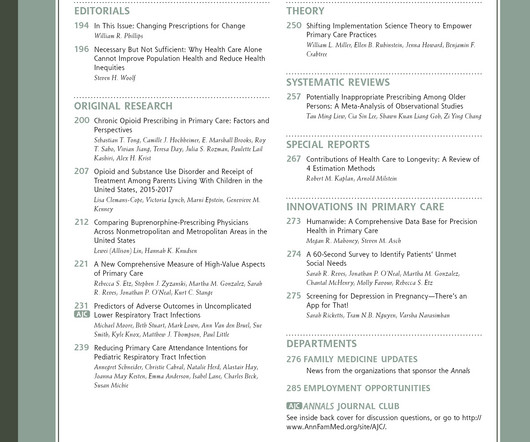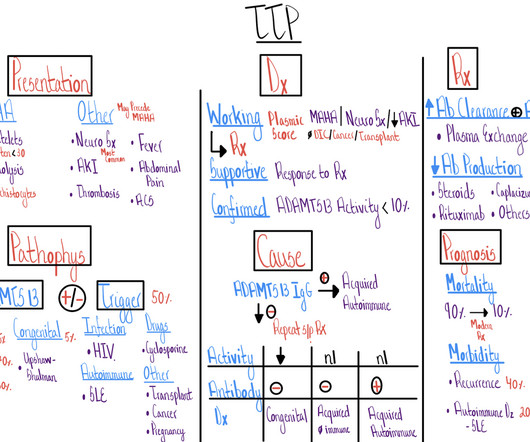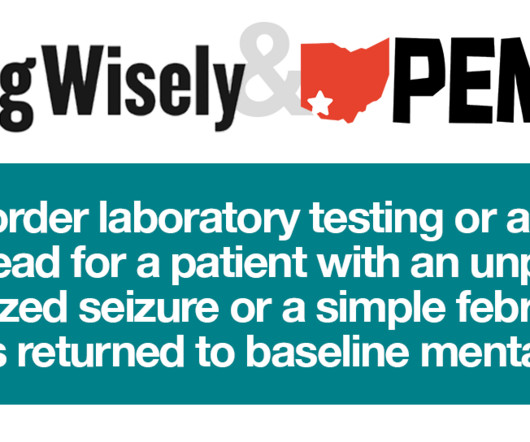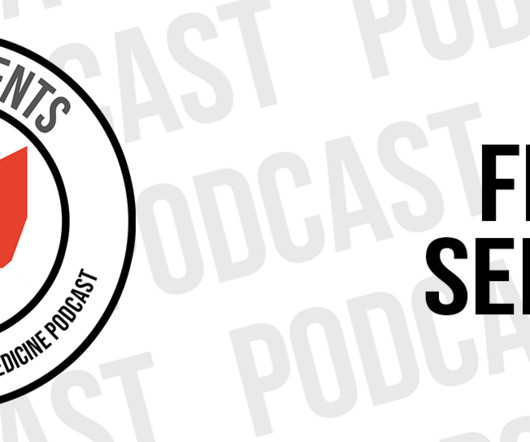Outcomes of Guidelines from Health Technology Assessment Organizations: A Systematic Mixed Studies Review [Systematic review, meta-analysis, or scoping review]
Annals of Family Medicine
NOVEMBER 20, 2024
Context: Health Technology Assessment (HTA) organizations determine the value of health technologies such as medical devices, lab tests, or medications. learning), the use of guideline-based information in clinical practice, and subsequent patient health outcomes. Health organization outcomes.





















Let's personalize your content